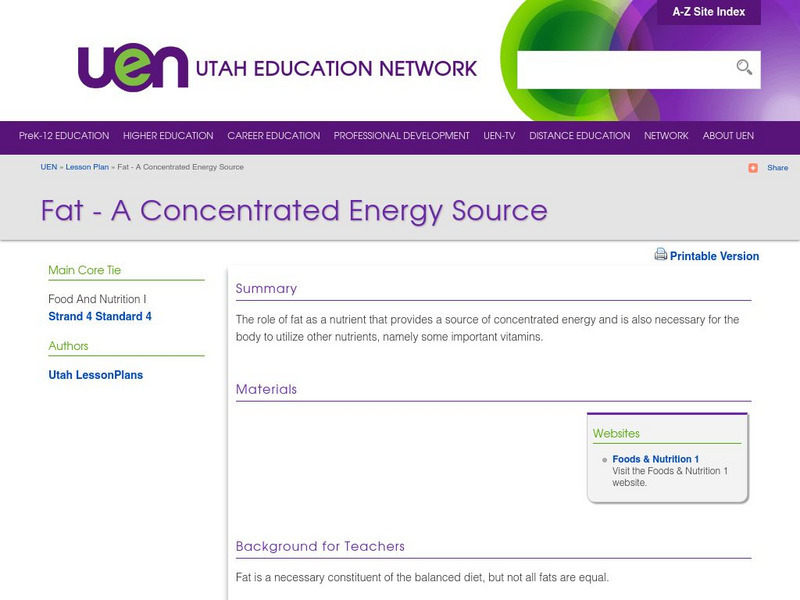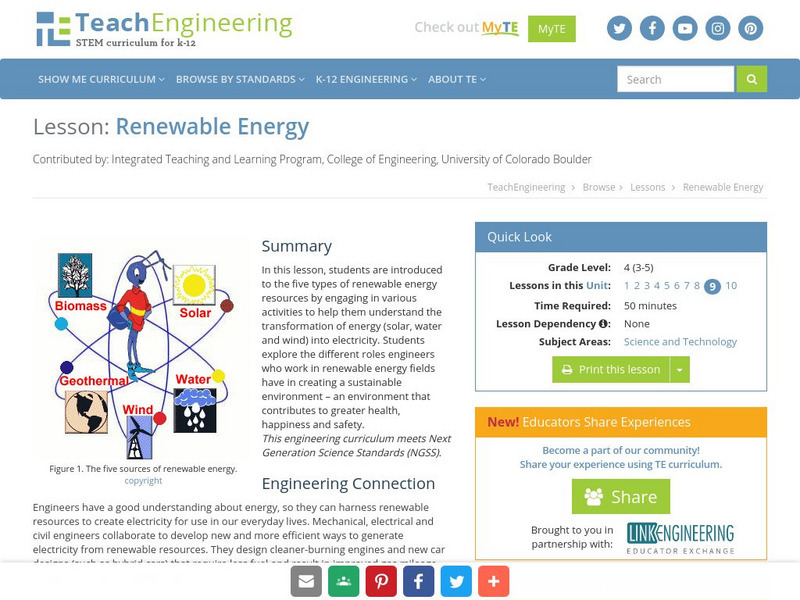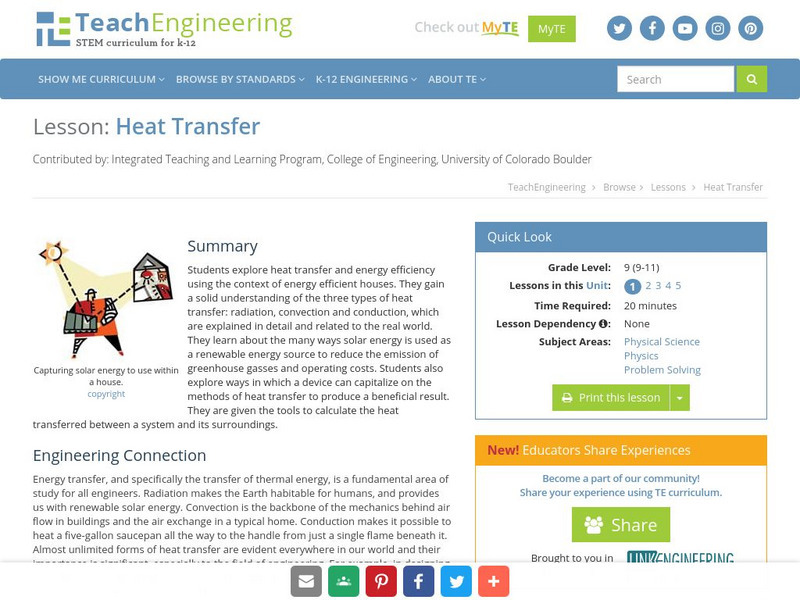Utah Education Network
Uen: Fat a Concentrated Energy Source
Through these lesson plans, students explore and discuss the role of dietary fat as an important energy source. In addition to providing detailed instructions for teachers, this website includes all the handouts and charts needed to...
TeachEngineering
Teach Engineering: Energy Conservation
Students are introduced to the idea that energy use impacts the environment and our wallets. They discuss different types of renewable and nonrenewable energy sources, as well as the impacts of energy consumption. Through a series of...
Science Buddies
Science Buddies: Project Ideas: Growing Green: How to Extract Energy From Grass
In this energy science fair project, the student will experiment with three types of grasses and determine which variety yields the highest amount of biomass. The Science Buddies project ideas are set up consistently beginning with an...
US Department of Energy
U.s. Department of Energy: Coal: Our Most Abundant Fuel
The U.S. has enough coal to last for the next 200-300 years. So why are we not using more of it? This article describes the different types or "ranks" of coal, the history, and the problems with burning coal for energy.
eSchool Today
E School Today: Non Renewable Energy
Learn what non-renewable energy is and the different types.
Alabama Learning Exchange
Alex: Energy and Work Amusement Park Style
This is a instructional activity presenting energy and work. It covers: types of energy, forms of energy, work, law of conservation of energy, and renewable and nonrenewable energy sources. In the activities section, one will find links...
TeachEngineering
Teach Engineering: Renewable Energy
In this lesson, students are introduced to the types of renewable energy resources. They are involved in activities to help them understand the transformation of energy (solar, water and wind) into electricity. Students explore the...
US Energy Information Administration
U.s. Eia Energy Kids: Renewable Energy: Wind
Mankind has used the wind as an energy source for thousands of years. Discover other ways the wind is used to make energy.
Science4Fun
Science4 Fun: Biomass Energy
What is biomass? Learn about the different types of biomass energy, how it is released, and the advantages and disadvantages of biomass.
US Department of Energy
U.s. Department of Energy: Water Power Program: Types of Hydropower Plants
Learn about the three types of hydroelectric power plants used to capture the energy from water at a hydropower dam site.
Michigan Reach Out
Newton's Apple: Body Fat
Through these lesson plans, investigate the different types of fat found in food and found in the human body. Discuss the functions and problems associated with dietary fat and make wise food choices based on what you learn about fat,...
Science Buddies
Science Buddies: Biodiesels: Converting Oil Into Clean Fuel
Experiment making biodiesel from different types of oil and determine which oils give the best result. This science fair project from Science Buddies, although in an abbreviated format compared to other Science Buddies experiments, gives...
TeachEngineering
Teach Engineering: Heat Transfer
Students explore heat transfer and energy efficiency using the context of energy efficient houses. They gain a solid understanding of the three types of heat transfer: radiation, convection and conduction, which are explained in detail...
TeachEngineering
Teach Engineering: Win That Bid! Selling Your Power Solution
A large part of engineering involves presenting products, concepts, and proposals to others in order to gain approval, funding, contracts, etc. The purpose of this activity is to fine-tune students' presentation skills while allowing...
TeachEngineering
Teach Engineering: Stop Heat From Escaping
One way to conserve energy in a building is to use adequate insulation. Insulation helps keep the hot or cool air inside or outside of a building. Inefficient heating and cooling of buildings is a leading residential and industrial...













